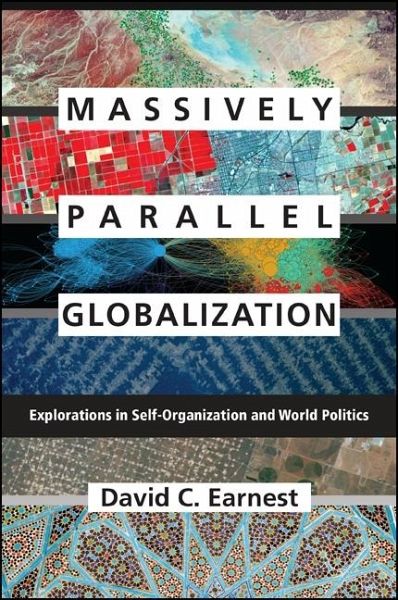
Massively Parallel Globalization (eBook, ePUB)
Explorations in Self-Organization and World Politics

PAYBACK Punkte
13 °P sammeln!
Explores how individuals and groups adapt to the challenges of globalization.In this era of globalization, people organize into fluid, adaptive networks to solve complex problems and provide resources that nation-states cannot. Examples include the Grameen Bank, mHealth, and the Ushahidi open source software project. Why do these networks succeed where nation-states fail? Only recently have social scientists developed tools to understand exactly how these complex networks self-organize, emerge, adapt, and solve collective problems. Three of these tools-agent-based modeling, social network anal...
Explores how individuals and groups adapt to the challenges of globalization.
In this era of globalization, people organize into fluid, adaptive networks to solve complex problems and provide resources that nation-states cannot. Examples include the Grameen Bank, mHealth, and the Ushahidi open source software project. Why do these networks succeed where nation-states fail? Only recently have social scientists developed tools to understand exactly how these complex networks self-organize, emerge, adapt, and solve collective problems. Three of these tools-agent-based modeling, social network analysis, and evolutionary computing-are converging in a field known as computational social science. In this provocative book, David C. Earnest discusses how computational social science helps us understand "massively parallel globalization." Using "explorations" of global systems ranging from fisheries to banking, Earnest illustrates the promise of computer models for explaining the surprises, cascades, and complexity that characterize global politics today. These examples of massively parallel globalization contrast sharply with the hierarchical and inflexible governmental bureaucracies that are poorly suited to solve many of today's transnational and global challenges.
In this era of globalization, people organize into fluid, adaptive networks to solve complex problems and provide resources that nation-states cannot. Examples include the Grameen Bank, mHealth, and the Ushahidi open source software project. Why do these networks succeed where nation-states fail? Only recently have social scientists developed tools to understand exactly how these complex networks self-organize, emerge, adapt, and solve collective problems. Three of these tools-agent-based modeling, social network analysis, and evolutionary computing-are converging in a field known as computational social science. In this provocative book, David C. Earnest discusses how computational social science helps us understand "massively parallel globalization." Using "explorations" of global systems ranging from fisheries to banking, Earnest illustrates the promise of computer models for explaining the surprises, cascades, and complexity that characterize global politics today. These examples of massively parallel globalization contrast sharply with the hierarchical and inflexible governmental bureaucracies that are poorly suited to solve many of today's transnational and global challenges.
Dieser Download kann aus rechtlichen Gründen nur mit Rechnungsadresse in A, D ausgeliefert werden.













